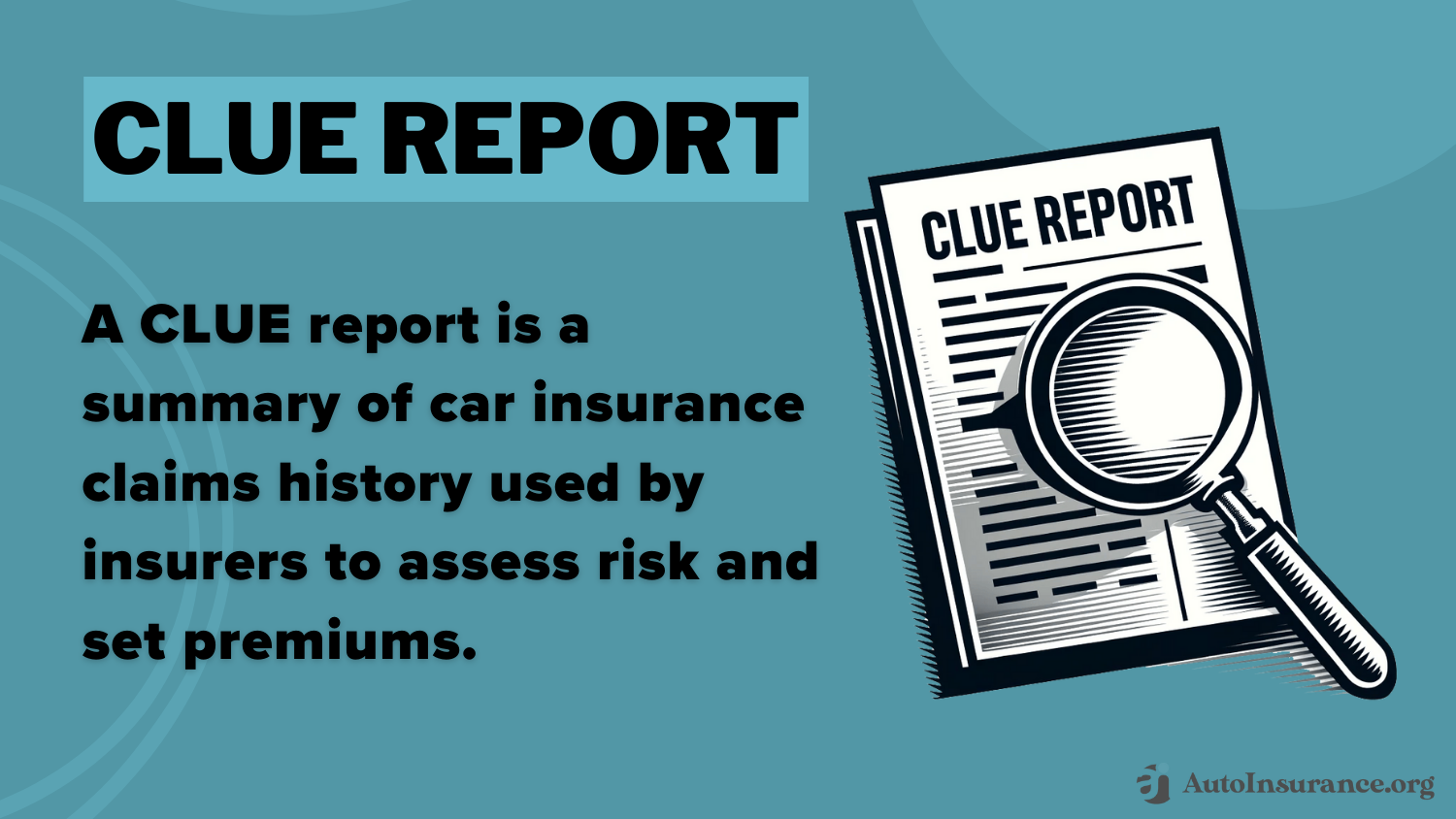Can I claim auto insurance on my tax return?
If you drive for work, you may be able to claim auto insurance costs on your tax return. You can deduct a little over a dollar for every two miles you drive, along with other car-related costs like fuel and parking fees. A business auto insurance policy protects your interests and may also earn you a tax deduction. Personal auto insurance can't be claimed on your taxes.
Read more Secured with SHA-256 Encryption




Table of Contents
Table of Contents


Insurance and Finance Writer
Alexandra Arcand is an outreach administrator and insurance expert located in North Central Ohio. She has a passion for writing, investing, and education. As an insurance content writer for over three years, Alexandra has first-hand experience in business finance, economics, and real estate. She leads an outreach writing team that specializes in travel, real estate, healthcare, law, finance, an...
Alexandra Arcand


Licensed Insurance Agent
Travis Thompson has been a licensed insurance agent for nearly five years. After obtaining his life and health insurance licenses, he began working for Symmetry Financial Group as a State Licensed Field Underwriter. In this position, he learned the coverage options and limits surrounding mortgage protection. He advised clients on the coverage needed to protect them in the event of a death, critica...
Travis Thompson
Updated December 2024
You can’t claim auto insurance on your tax return if it’s personal, but a car used for business is a different story. Your car and the cost of using it become part of your business expenses, including the cost of obeying auto insurance laws by insuring that car.

You might be about to claim some or all of those car-related expenses on your taxes as deductions and tax write-offs.
While not all taxpayers are entitled to auto-related deductions, those who are can reduce their tax liability and possibly increase their federal refund.
It’s so important that you know the law and how you can legally lower your taxable income before you file your income taxes for the prior year.
Not only do you need to know the tax deduction methods, but you’ll also need to know what qualifies as business use and what doesn’t.
If you’re not familiar with deducting auto-related expenses, it’s time to learn your options. Read this guide to car insurance write-offs and learn the difference between standard and itemized deductions so that you’re prepared once April 15th comes around.
If you buy a new car, it is not automatically tax deductible unless it is used for business purposes and you are self-employed or own a business. Additionally, whether car insurance is tax deductible in California follows the same federal guidelines, so the same rules apply. Therefore, understanding the nuances of self-employed car insurance is crucial to ensure compliance and maximize your deductions.
The only last
Before you find out if you can deduct your auto insurance on your taxes, find out how much you could be saving. Enter your ZIP code now to compare auto insurance rates for free.
- To qualify for an auto insurance tax deduction, you must drive for business purposes
- You can deduct vehicle expenses by calculating the actual expenses incurred or by taking a standard deduction
- You’ll need to provide proof of car insurance costs if using an actual deduction method
- You may be eligible for a deduction for depreciation or unreimbursed bills after a loss
How can you claim auto insurance on your tax return?
When considering how to claim car insurance on taxes, it’s important to know the specific circumstances under which it is deductible.
According to the IRS, for auto-related expenses to be considered deductible, you must be driving for business and not strictly commuting to and from a single worksite.
For those who are self-employed, car insurance can often be a deductible business expense, particularly if the vehicle is used for business purposes. However, for regular employees, car insurance is generally not an itemized deduction and thus not tax-deductible due to changes in tax law. For employees, car insurance is generally not deductible. The TCJA of 2017 (Tax Cuts and Jobs Act) eliminated the ability to deduct unreimbursed business expenses, which eliminated employees’ ability to deduct such costs. Again, if you have car insurance and are self-employed, you can possibly write off your auto insurance.
Here are some examples of auto-related tax deductions:
- You’re self-employed
- You drive to sales meetings away from the usual office or site
- You’ve been reassigned to a new office temporarily that’s further from your home
- You travel to buy supplies and equipment
- You drive out of state for conferences and meetings
- You go to multiple client’s offices for business meetings
- You drive to the airport for business travel
An income tax car insurance rebate in today’s system refers to potential tax benefits or deductions you might receive related to car insurance. For some car insurance tax may be high, so be sure to look at all options to ensure you have the best for your needs.
Next, let’s take a look at how auto insurance classifies business use.
Free Insurance Comparison
Compare Quotes From Top Companies and Save
Secured with SHA-256 Encryption
What qualifies as business use for auto insurance?
Some may wonder, does having insurance affect my tax return? The short answer is that if your car is for personal use, car insurance premiums are generally not deductible and do not affect your tax return.
It’s easy to get confused as to what qualifies as business use. After all, if you use your car for business, wouldn’t you naturally need a business auto insurance policy instead of a personal auto insurance policy?
You can deduct car insurance as a business expense if you own rental properties and use your vehicle for tasks related to managing those properties, you may be able to deduct car insurance related to that.
What some people don’t know is that their car insurance policy will extend coverage to a private passenger car that’s being operated for both personal and business use.
If the car is being driven for business 100 percent of the time or it is business equipment, it needs to be covered under a commercial plan.
What types of auto-related expenses can be written off?
For an auto-related business expense to be written off, it needs to be considered both necessary and ordinary. While mileage is perhaps the biggest deduction that you’ll be able to take, it’s not the only one you should know about.
The only time that you can deduct mileage is when your employer doesn’t already reimburse you. If you’re being reimbursed already, you might still qualify for write-offs for the following actual expenses that you’ve incurred throughout the year:
- Fuel
- Oil changes
- Vehicle repairs
- Maintenance
- Registration fees
- Lease payments
- Depreciation
- Tolls
- Parking fees
- Insurance premiums
- Uncovered claims
So even if you’re not eligible to write off the miles you’ve driven for your employer, you could still have other deductions that can help lower your tax liability when you’re driving your car for business.
How much of your auto expenses can be written off?
You can’t just write off every single expense you’ve incurred throughout the year when it comes to maintaining or operating your vehicle. If you could write off every expense, you’d have a huge deduction by taking the more complex actual expense deduction.
For most business operators, taking actual expense deductions are more beneficial because you’ll be able to actually deduct what you’re forking out money for.
When you do this, you’ll get a write-off based on what percentage you drive the car for business.
One hundred percent of the expenses can be written off if the car’s strictly driven for business, but only 50 percent of the expenses can be written off if the car’s used half of the time for your personal needs.
If you receive a write-off for your car insurance refund, you may be able to deduct it from your taxable income, potentially reducing your overall liability.
When claiming car insurance on your taxes, it’s important to understand the specifics. To determine whether car insurance is exempted from income tax, you need to consider how the vehicle is used. For business purposes, car insurance can be a deducted expense. When do you start paying tax on this deduction? You start paying it during the tax year the insurance was paid. Knowing where to claim car insurance is crucial: for business use, it should be included under your business expenses on Schedule C if you’re self-employed. This ensures you accurately account for all eligible deductions.
Free Insurance Comparison
Compare Quotes From Top Companies and Save
Secured with SHA-256 Encryption
Methods for Deducting Auto-related Expenses
There are two different ways that you can go about taking a tax deduction for your car expenses. You can either choose a standardized deduction method or the actual expense deduction method.
The standardized method is simplified and doesn’t require record-keeping or receipts. The actual expense method, however, requires record-keeping and receipts that show the expenses you’ve paid for business use.
You’ll only be able to claim your car insurance on your taxes if you take the time to fill out the forms to file deductions for the actual auto expenses incurred.
If you’re trying to take a more simplified approach when you file your taxes, you won’t be able to specifically claim your auto insurance premiums. Instead, you’ll get a standardized deduction as it’s set forth by the IRS.
How should you keep auto expense records to prepare for tax season?
It can sound intimidating when you’re expected to keep a running record of all of your mileage and all of the expenses that you’ve paid. But when it’s all said and done, making the time and effort will be worth it — especially in today’s economy where inflation is taking a toll, and every deduction you can get helps.
Thankfully, new record-keeping systems have made tracking and recording information easier than ever.
You can even attach scanned copies of receipts to your records and keep them saved in a digital file for safe-keeping.
You must be meticulous with your records. You should track daily miles through a tracker or on an Excel spreadsheet.
You should also record the following:
- Fuel expenses
- Maintenance expenses
- Repair expenses
- Insurance invoices
Saving this information will make filing the necessary forms for actual expense deductions much easier and less intimidating. If you have a loss, be sure to track expenses you’ve covered out-of-pocket as unreimbursed losses may be write-offs, too.
The U.S. tax code can be very confusing when you’re not well-versed in it.
Fortunately, there are programs and guides that call help you sift through the words to understand the real meaning. It’s possible that your car insurance premiums could qualify as a write-off if you’re a business person.
Even if it’s a write-off, it’s important to find the lowest possible rates. Start to compare auto insurance premiums with our online rating tool below and then these premiums may be deducted later. Enter your ZIP code below to begin.

Frequently Asked Questions
Can I claim auto insurance on my tax return if I use my car for ridesharing or delivery services?
Yes, if you use your car for ridesharing or delivery services as part of your business, you can claim a portion of your auto insurance expenses on your tax return.
What if I have a loss or damage to my vehicle? Can I claim the auto insurance deductible on my tax return?
If you have unreimbursed expenses due to a loss or damage to your vehicle, you may be eligible to claim those expenses on your tax return.
Can I claim auto insurance on my tax return if I am self-employed?
Yes, self-employed individuals can claim auto insurance expenses as part of their business expenses on their tax return. To fully understand whether car insurance deductibles are tax deductible, and whether you are self-employed, you have to make sure you have all of the correct legitimate business paperwork on file.
Can I claim auto insurance on my tax return if I work from home?
If you have a home-based business and use your car for business purposes, you may be eligible to claim auto insurance expenses on your tax return.
Can I claim auto insurance on my tax return if I am reimbursed by my employer?
If you are already being reimbursed for auto insurance costs by your employer, you generally cannot claim those expenses on your tax return. If you are wondering, “Can I write off my car insurance as a business expense”, the answer depends if you are self-employed, or if you use your car as part of your employment, if any of those costs are reimbursed to you.
Can I claim auto insurance on my tax return if I use my car for personal and business purposes?
Yes, you can claim a portion of your auto insurance expenses based on the business use percentage. Keep accurate records to determine the business use percentage.
Does car insurance count as a tax deduction?
When determining if a business vehicle’s insurance can be expensed as a tax deduction, many business owners ask, “Can I claim tax relief on car insurance for my business vehicle?”
Car insurance can sometimes be considered a tax deduction, but it depends on the context of how the vehicle is used. Generally speaking, self-employed car insurance is tax deductible as a business expense. Self-employed car insurance is a tax deduction if your vehicle is used for a verified business.
How do I claim car insurance on my taxes?
Yes, you can claim auto insurance on your taxes, if your vehicle is used for business purposes. See below for how to handle vehicle insurance tax.
When considering how to write off auto insurance, it’s important to understand the specific criteria. You can write off car insurance as a business expense if the vehicle is used for business purposes.
To claim car insurance on your taxes, you must use the vehicle for business purposes if you’re a self-employed business owner. You’ll report this expense on your car insurance tax form Schedule C (Form 1040) under “Car and Truck Expenses”. If the vehicle is used for both personal and business purposes, you can only deduct the portion of the insurance that applies to business use. Keeping detailed records of mileage and expenses will be important to support your claim.
If you buy a new car, is it tax deductible?
Buying a new car is not automatically tax deductible. However, if you use the new car for a business purpose, you may be able to deduct certain expenses, including depreciation, loan interest, registration fees, and insurance, related to the business use of the car. If wondering if auto insurance premiums are tax deductible, the answer is usually no.
Can I claim mileage on my taxes?
Yes, if you use your car for business purposes, you can claim mileage on your taxes. The IRS allows you to choose between the standard mileage rate and the actual expense method. While you may or may not be able to use your car insurance for a tax write-off, there are plenty of other deductions possible on your taxes.
Does car insurance count as a tax deduction?
What other vehicle expenses can I deduct from my taxes?
Does an insurance claim count as income on taxes?
Can my car payment be tax deductible?
What information do you need for a tax return?
What percentage of car insurance can I claim in self-employed?
Can my business pay for my auto insurance?
What type of expense is car insurance?
Can I claim hazard insurance on my taxes?
What cars have cheap tax and insurance?
Do you have to pay tax on car insurance?
Get a FREE Quote in Minutes
Insurance rates change constantly — we help you stay ahead by making it easy to compare top options and save.







